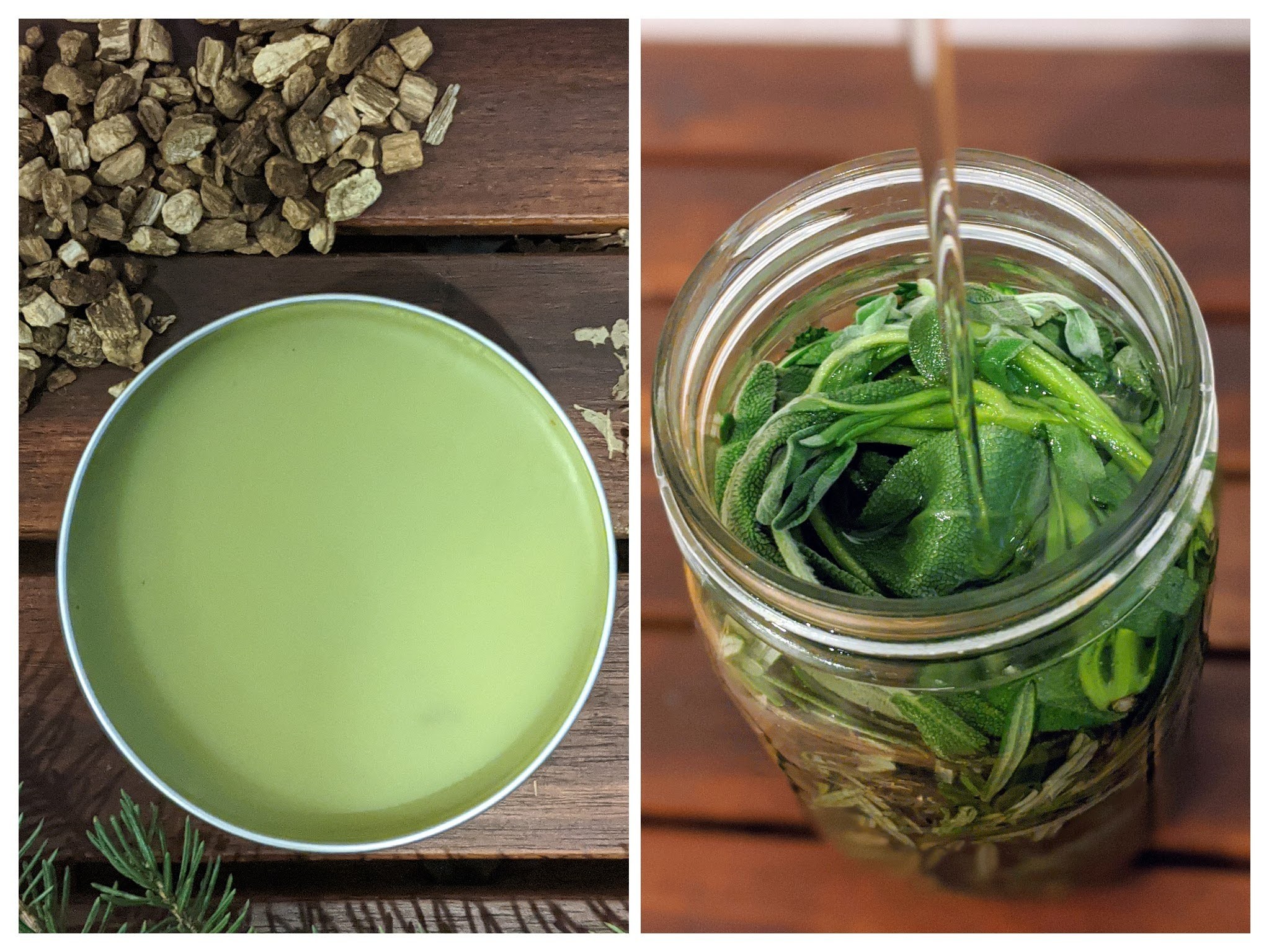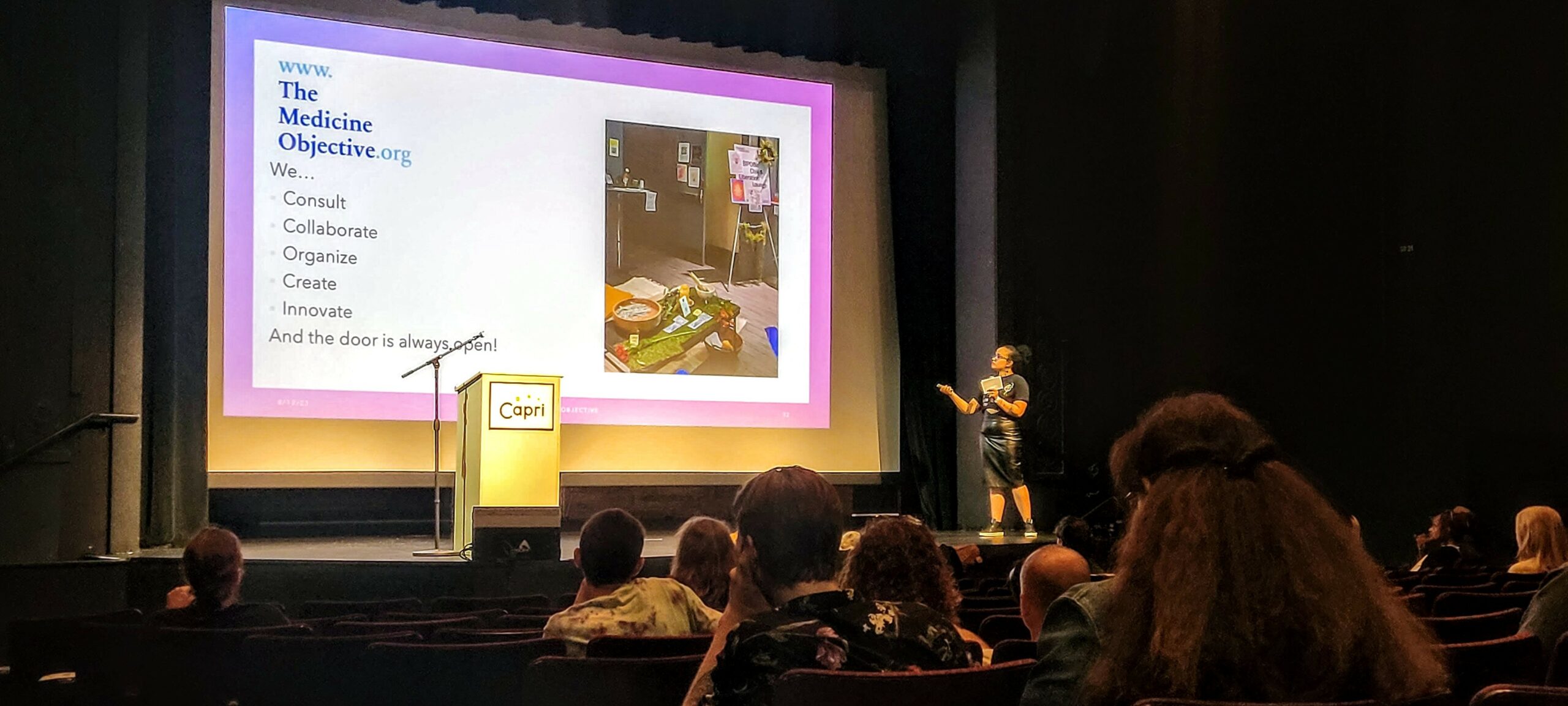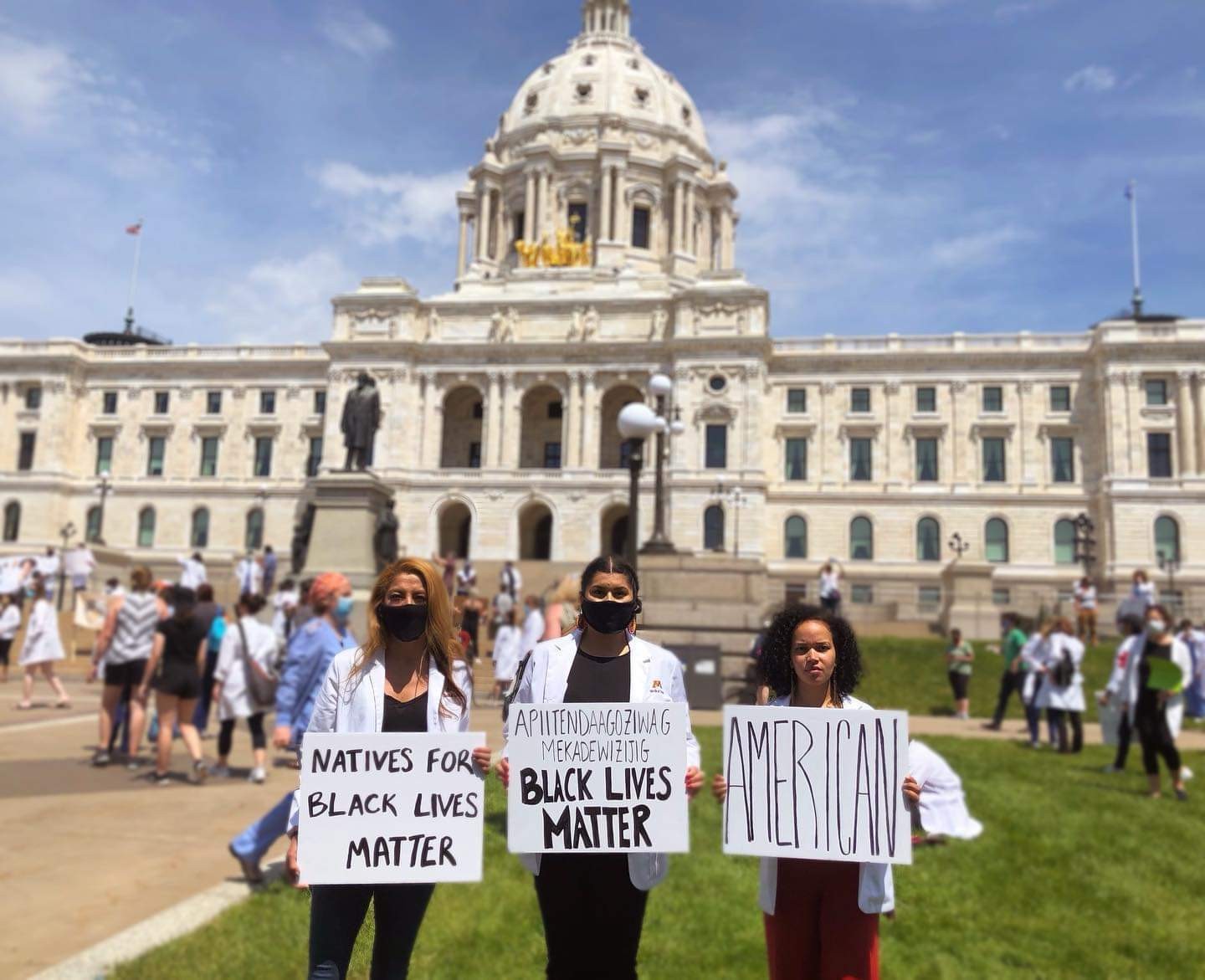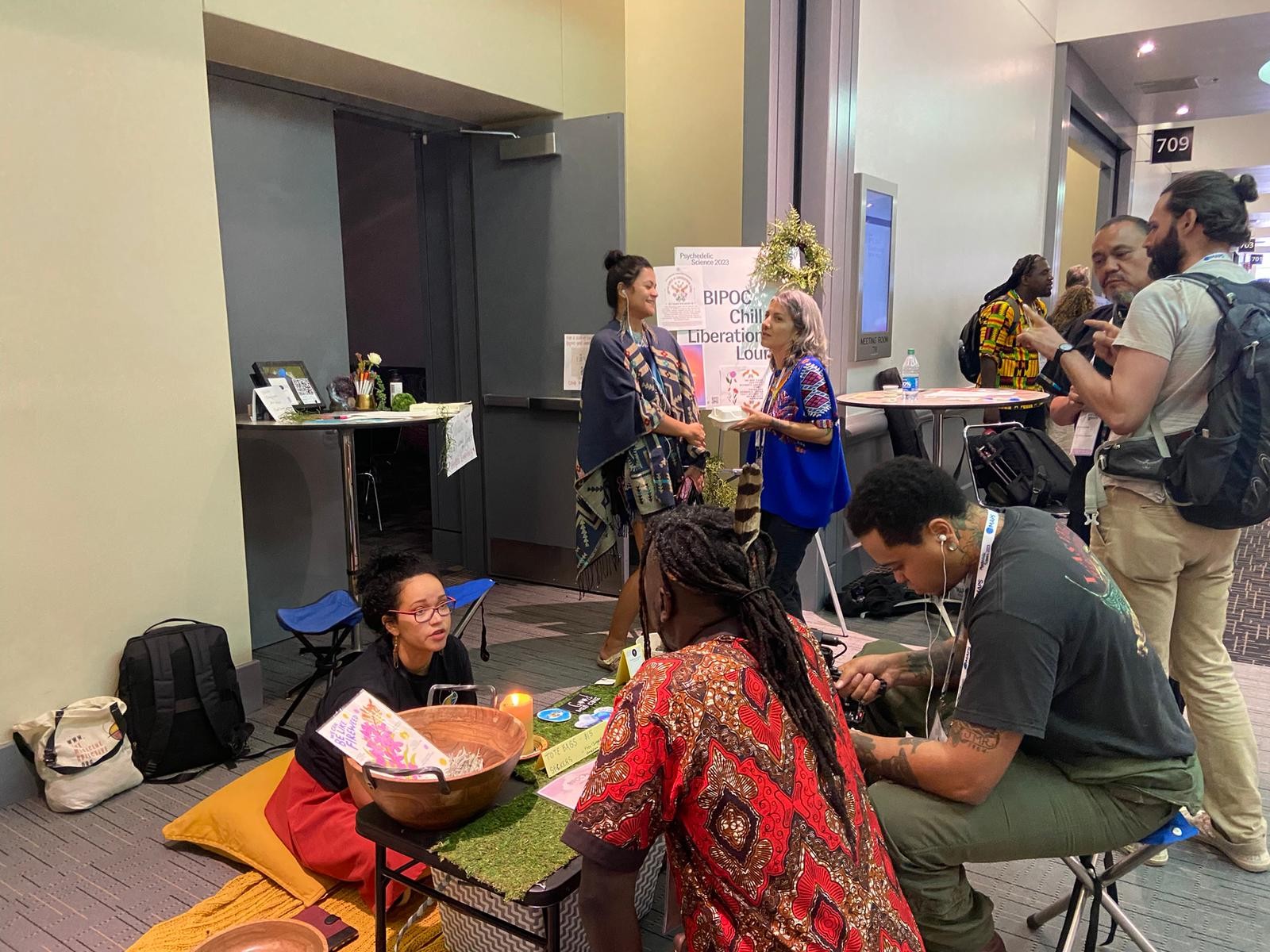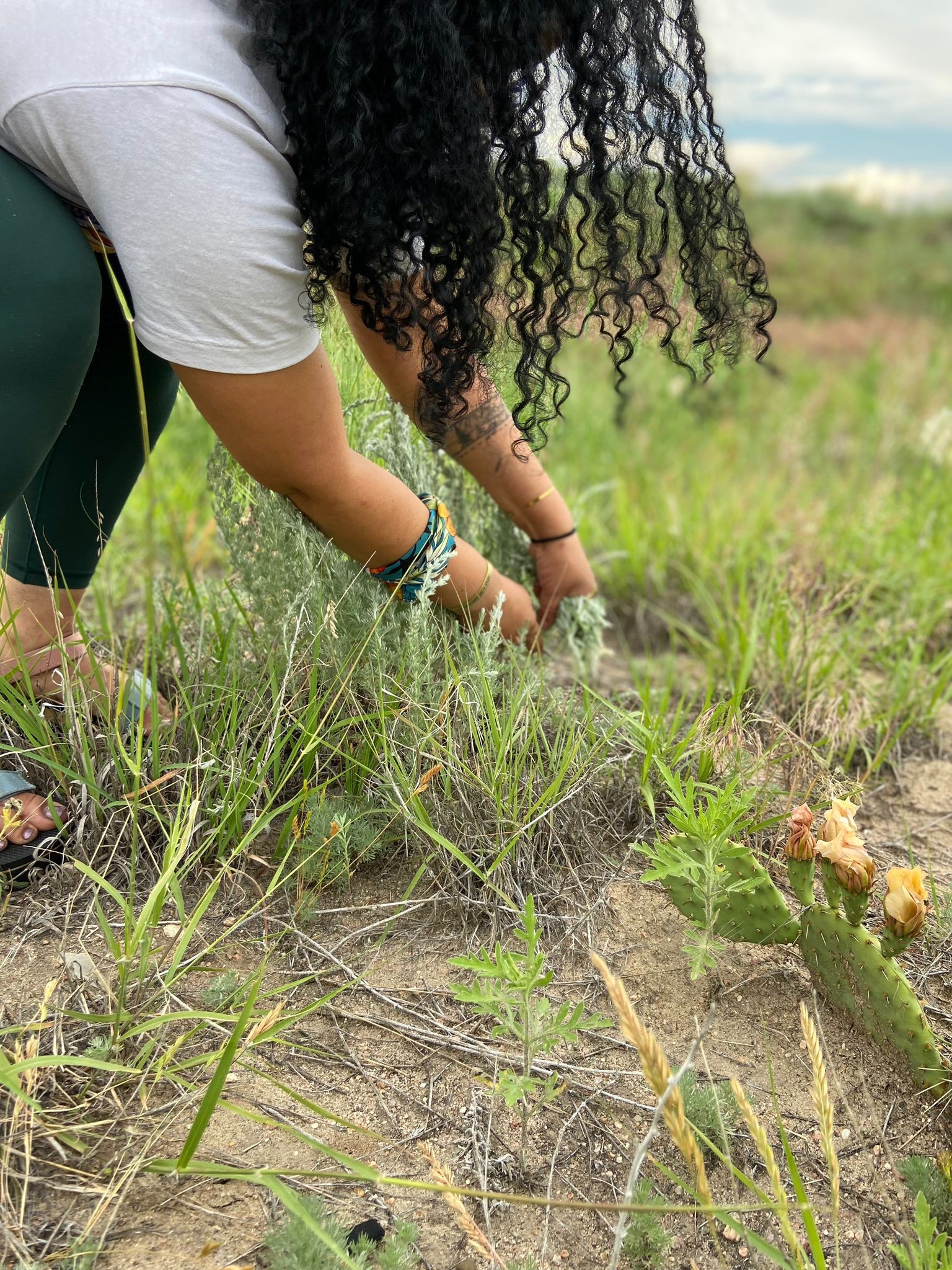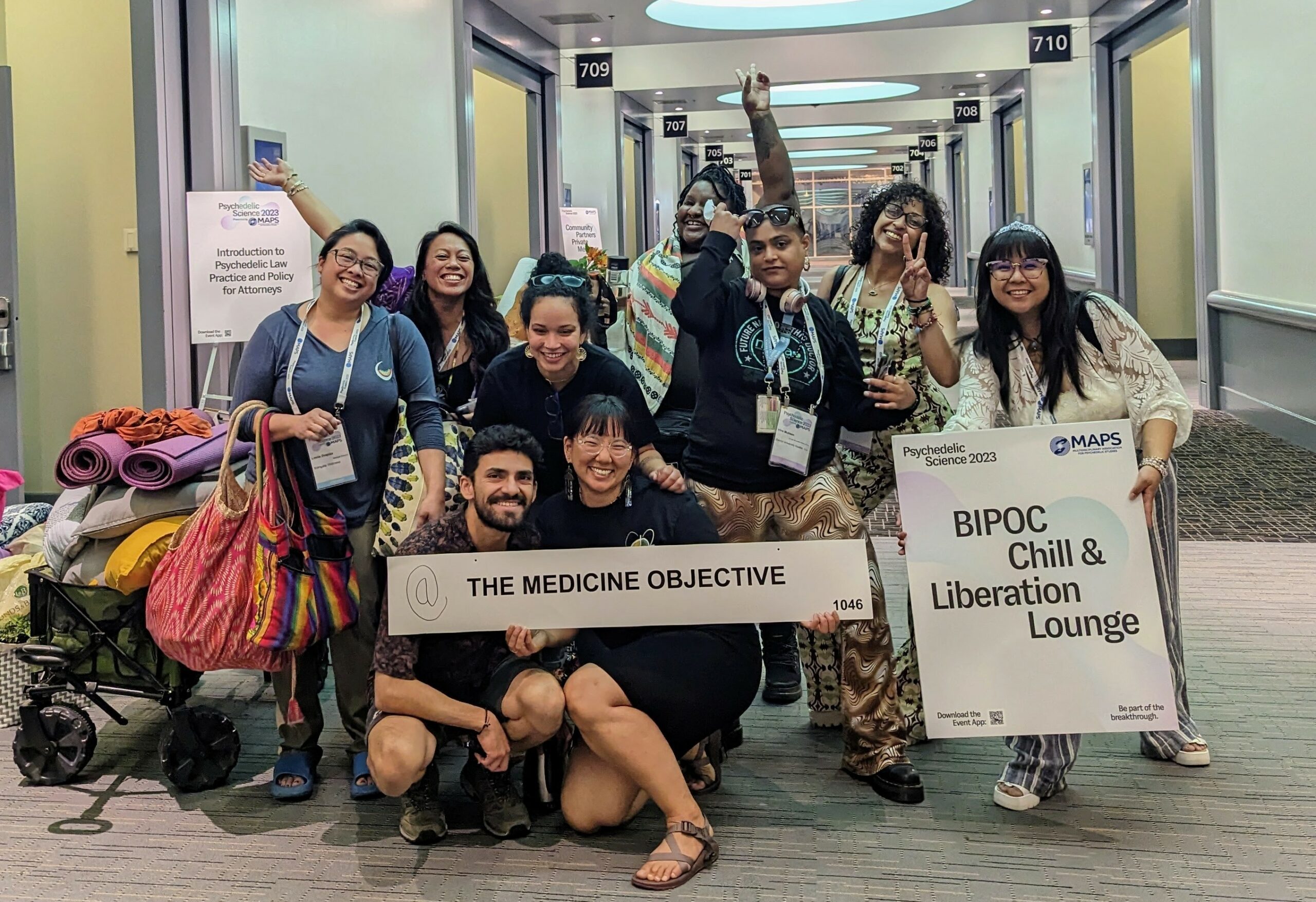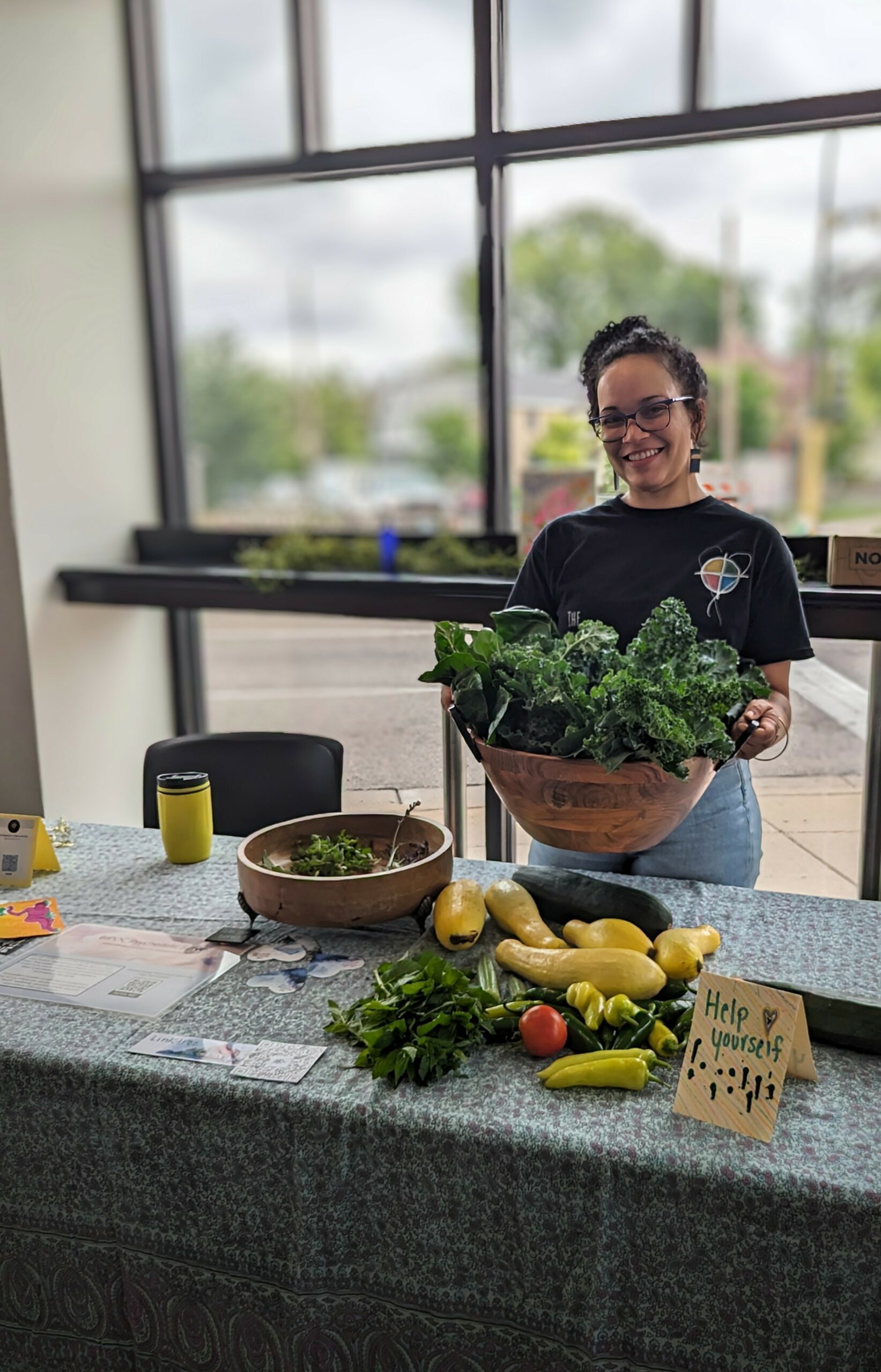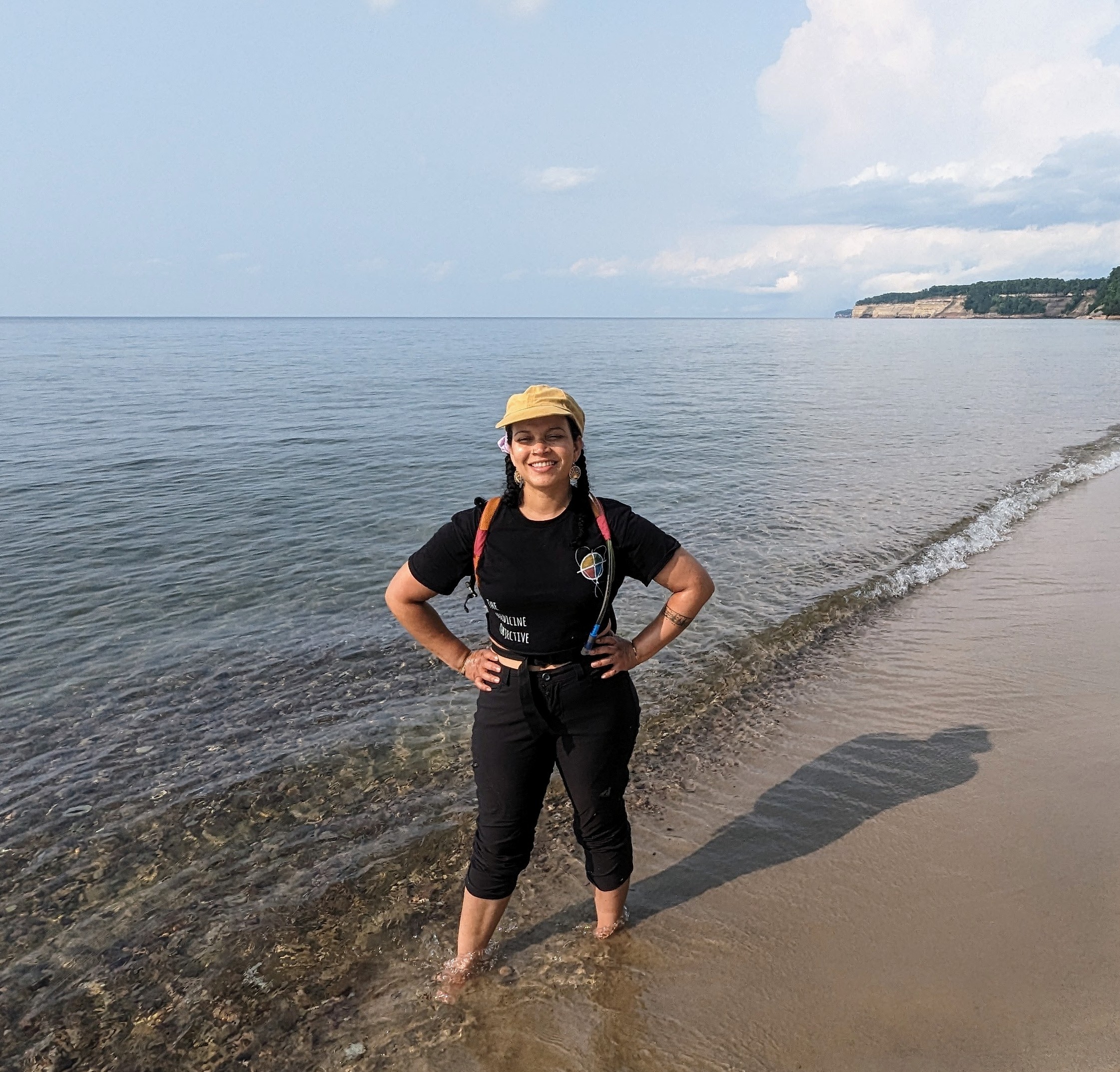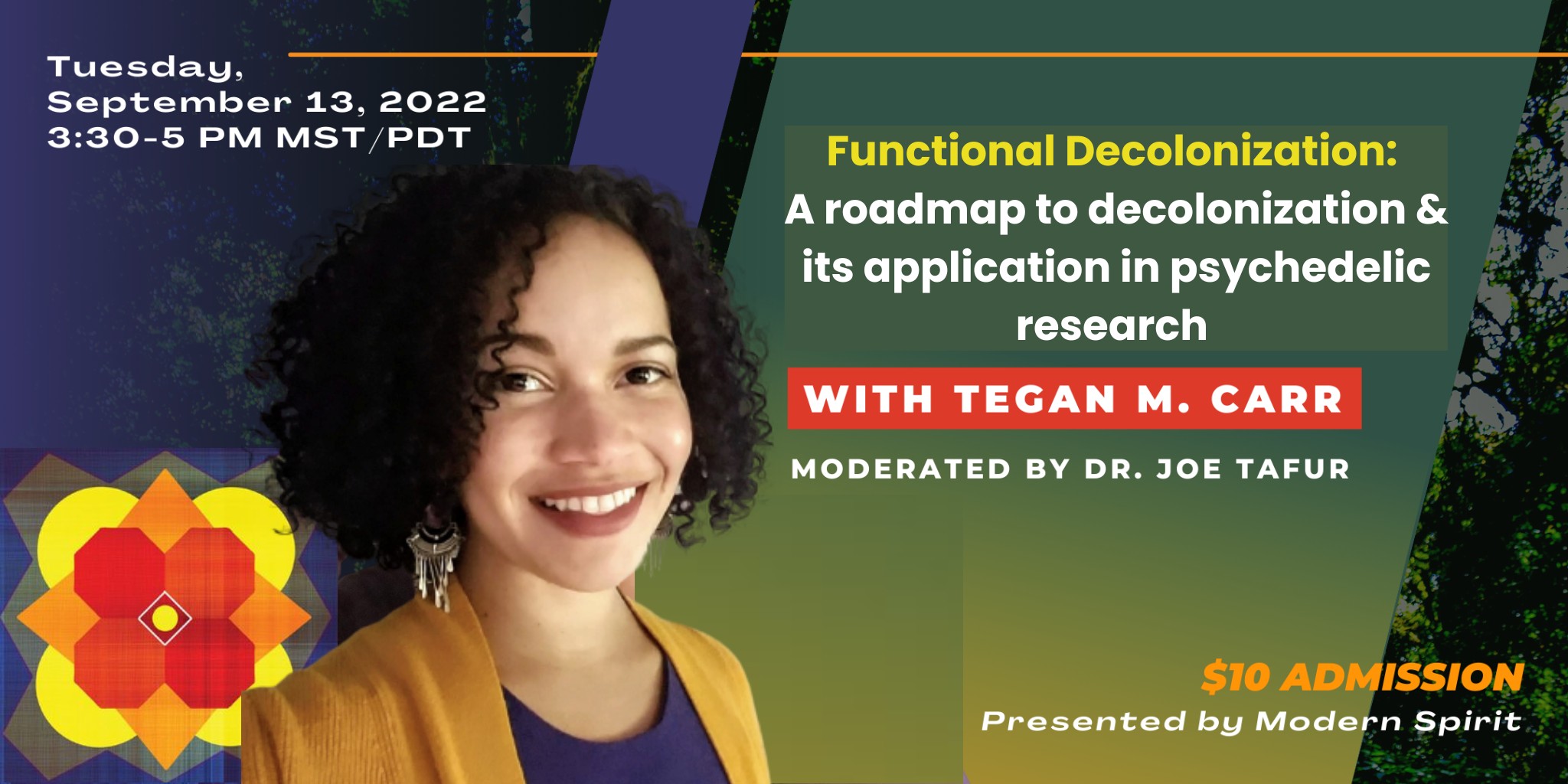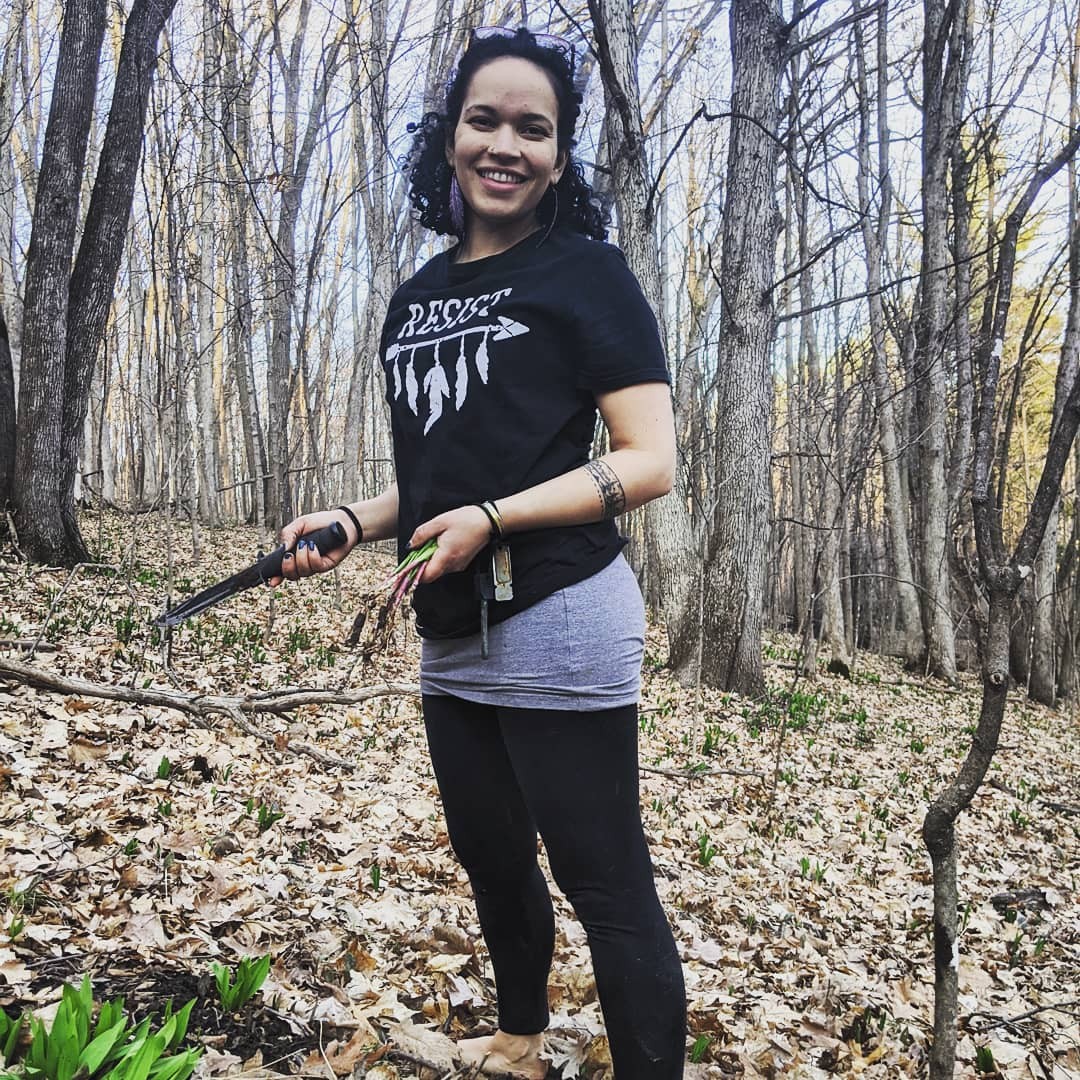We were lucky to catch up with Tegan Carr recently and have shared our conversation below.
Hi Tegan, really happy you were able to join us today and we’re looking forward to sharing your story and insights with our readers. Let’s start with the heart of it all – purpose. How did you find your purpose?
I’ve felt my purpose as a healer for as long as I can remember, but the path to actually find my purpose was long and rather difficult. As a child, I had an affinity for working with plants. I naturally recognized the plants in my life as individuals with unique attributes and I thought it was wonderful that some were talented with the ability to help people. I remember biking around the neighborhood with a friend when I was about 7 years old. She fell and scraped her leg and the quickest way I knew to help was to pull a handful of frogleaf (broadleaf plantain) and crush it into a poultice. I was also aware that some plants, like lily of the valley which was one of my favorite flowers had the ability to harm people and also be food or medicine for other creatues. I respected that but never held it against them. I understood that “medicine” and “poison” are subjective and that healing is a relationship between what heals and what needs healing. I wanted to be a facilitator of these connections and I believed that one day I could learn to cultivate my own innate medicine properties like these talented plants. I also recognized that healing, as with any relationship, is about balance.
The sensation of balance, the resonance of it is a powerful thing to be aware of. All young children naturally feel for balance, the resonance of things being right and aligned, and know how follow it, but we are quickly socialized through schooling and society to reject such intuitive ways of knowing and being. We are taught to intellectualize information, reason and think linearly, and we are educated early on that if you can’t verbally describe what brought you to an answer, then that answer must not be valid. The turning point for me was to recognize the imbalance in this and start learning to listen to my body, my gut, my heart, and the wisdom that seems to float into my mind when I’m meditating, dreaming, or in nature. The mind is far more impressionable than our other systems of knowing and when are taught to limit our knowledge and wisdom in this way, most of us will eventually find ourselves living in extreme states of dissonance. I didn’t come back to this perspective easily, there were extreme circumstances that pushed me to it, but since I’ve learned to balance and reintegrate my many ways of knowing into my awareness and executive function, I’ve lived my life with a powerful sense of assuredness and stability. When conditions internally or externally are out of balance, it’s like running on a slanted floor. I had to straighten that out before I could heal myself and find my purpose in bringing healing to others.
Aside from the times that I was in nature, writing, or creating, I spent my teen years more or less dissociated due to the repeated traumas, stressors, and instability I was experiencing in parts of my life. I attended Central High School in Rondo, St. Paul, which happened to have a black box social justice theatre program in the basement led by schoolteacher Jan Mandell who now leads the Black Youth Healing Arts Center in St. Paul. Jan was deeply invested in using the Theatre of The Oppressed and other transformative art forms to drive social change and empower her students, most of whom were underprivileged Black and Brown kids. Today there are a handful of world-renowned authors, poets, performers, and changemakers scattered from coast to coast who once slipped through the cracks of Central High and found power in the basement black box.
I was an anxious kid and struggled to verbally express myself under pressure so writing was where my heart came through and Jan nurtured this. I’ve been a writer for as long as I could scribble and it has always felt deeply healing for me, I still have my childhood journals filled with hardly legible poems for the flowers. The black box was where I learned to put poetry into spoken word, and when people told me that my words moved them, I felt that I was sharing that healing. When I joined the Central Touring Theatre and it was time to choose a name for the back of my t-shirt, my troupe mates named me “Revolutionary” for my poetry. I now understand that writing is part of my innate healing properties.
I graduated from high school without much sense of direction. My grades were poor and my high school advisor had advised me (and other girls of color) that I wasn’t college material and he refused to discuss options with me. I wanted to go to college, and I felt deeply that I wanted to alleviate suffering and drive meaningful change in the world, I just didn’t know how. I began attending community college full-time and working two jobs at minimum wage. It was a grind, but I had an unquenchable thirst for knowledge and for the first time in my life I was excelling academically. When I was 19 I entered a long-term relationship with someone who had very rigid expectations, and over time as I chipped away at my studies, this relationship chipped away at my sense of self. I learned to face the world as though I had something to prove and eventually I came to believe that I did. My studies and my career became the only parts of my life where I had any autonomy, so I gave those everything I had. I completed an associate of arts degree then transferred to the University of Minnesota to complete a bachelor’s in psychology, a bachelor’s in anthropology, a minor in neuroscience, plus some graduate courses in linguistics and child psychology, along with several internships and assistantships. Academia was a demanding environment where I could dissociate into intellectualism, and that was a safe place for me.
I chased my studies and career with the hope that they would culminate in fulfillment. I entered the professional field as a developmental behavioral therapy aide and care coordinator in an intensive outpatient program for little ones with severe pervasive developmental disorders. I networked into a volunteer internship at the VA Center for Chronic Disease Outcomes Research, then to a full-time research position and subsequent promotions at the Minneapolis VA Medical Center in addiction psychiatry. Psychiatry at the VA was difficult, demanding, and heart-wrenching but it was rewarding work and I thrived under wonderful mentorship, which led me to pursue an MD. I took a new job in the psychiatry department at UMN, enrolled in night classes for post baccalaureate work, and began studying intensively for the entrance exam before work and after classes. I’ve always been tenacious but by this point in my life I had also trimmed away any expectations of happiness in the way I once imagined. In the same way that trauma from earlier parts of my life had primed me for an abusive relationship, an abusive relationship primed me for medical school and academia – I felt that I could either crumble under my circumstances, or I could harness that pain into something good, the way my ancestors did. The difference is that my grandparents and ancestors persisted in circumstances far beyond their control, whereas I had just been living under this principle long enough that I lost sight of the exit points and therefore came to believe that this way of life was my absolute reality.
After 4 years of intense preparation, I finally submitted my initial application to medical school. With this done, my attention was pulled to what had been bubbling beneath the surface – I had to leave my relationship somehow. While he was out of town, I packed up my dog and a suitcase and left. I eventually succeeded in getting a divorce and protective order, but it would still be many seasons of intentional and intensive healing before I stopped catching glimpses of him over my shoulder.
After the final round of applications and interviews, I was accepted into my school of choice. I cried when I got the call. I felt certain that this was the path that would lead me to fulfillment, and I wasn’t wrong, but I couldn’t have anticipated the abrupt turns my path would take.
The reality is that the conditions of our society, at every level, reject balance, and medical school is no exception. Like many people, I saw the healthcare system as a broken system that needed fixing; I’ve since come to understand that the medical system is a well-oiled machine that works just as it was always intended, gatekeeping, racism and all. I went into medical school with the belief that once I had my MD I would be released from the pressures of the system, but I didn’t yet understand the role that medical school plays in serving the greater system. Medical school aims to do more than educate students, it primes and equips them to be stewards of the healthcare system. I struggled in medical school. My idealism, my neurodivergence, and my sensitivity to systems of control (as a social scientist who had also rehabilitated from a decade-long abusive relationship) made it so that I constantly felt the atmospheric pressure of a system trying to break me. There were faculty, mentors, and friends who supported and nurtured me the best they could, but it wasn’t in their power to shelter me from the storm ahead:
In 2020 George Floyd was murdered in the forefront of a global pandemic and all hell broke through. The latent racism and indifference in medical school rushed to the surface and the community called for reform. I spent the next year splitting my commitments between being a medical student and being a leader in equity reform. I organized movements and task forces, met regularly with executive decision-makers, provided training and education to faculty, soothed and mediated for student, developed curriculum, consulted on admissions, hiring, and evaluation processes, and produced 40 pages of itemized recommendations for reform, some of which I helped to implement. For nearly a year, I was putting in 10-20 hours a week of unpaid labor in addition to the 60 hours a week I spent on academics. Externally I rose to the demand and internally I grieved and crumbled. My mental and physical health deteriorated, and I began having intense bouts of pain. My primary care provider in Duluth (a well-respected female physician and preceptor for the medical school) dismissed and aggressively gaslit me for a year, even as my pain reached unimaginable heights and other alarming symptoms appeared. By the time I could get to Minneapolis for a second opinion, I had stage 4 endometriosis, severe hydronephrosis and advanced kidney injury resulting in surgery, multiple procedures, irreversible organ damage, and lifelong chronic health conditions.
It took 2 years to begin to recover physically, mentally, spiritually. I took some time away from the medical school to heal, reflect, and do other work: I researched, completed a health equity addiction psychiatry fellowship, and completed a certificate program in psychedelic assisted therapies and research. I returned to medical school briefly to finish my second year and, finding that my relationship with institutional medicine had changed, I decided to leave. Leaving was painful, but it was right for me. I gathered up my scholarship, activism and other initiatives, my idealism, and multidisciplinary talents; I took my medicine with me and founded a defiant organization called The Medicine Objective, Inc.
I turned my focus to healing my body, my spirit, my being, and for the first time, I intentionally sought balance. I’m more mindful now of my precious time and energy, I prioritize quality time with my partner, my pet, and other people I love, and I seek the things that bring me joy. I’ve returned to nature and I listen to her just as well as I did as a child, learning to incorporate nature in an ecosystem of healing. I’ve taken a lot of time and space to sit with plant medicine, with community, and with myself and I’ve found a calling in creating and holding spaces for collective healing. I also put my multidisciplinary background to work and began to intentionally study and analyze the medical system and other societal institutions to develop a strategy for systematic decolonization. I now apply this strategy across education, healthcare, and research. I no longer labor for free and as a consultant my reach is greater now than it would have been from within the confines of any one healthcare institution. I continue to write and use writing to facilitate healing and learning. Eventually I intend to publish some of my many works. What I’ve shared there is the nutshell of my journey through medical school, the actual meat of it could fill a book and that’s what I’m working on now and hope to release it early next year.
I found my purpose in healing ecosystems of people, places, institutions, and the relationships between. Though I went through hell to get there, that was the nature of my path and it has armed me dangerously. I keep my balance by moving between the work that needs me and the work that fills me.
Thanks for sharing that. So, before we get any further into our conversation, can you tell our readers a bit about yourself and what you’re working on?
I’m the founder of an organization called The Medicine Objective, Inc. (TMO) which is an amazing collective of empowered people and is the overhead for much of my work and collaborations in health equity, healing justice, and decolonization. TMO was founded as an entity for my medical colleagues and I to continue our work under our own institutional overhead. Now, the TMO community is more diverse and includes artists, organizers, healers, and many others. We take a very collaborative approach to nonprofit work so our initiatives are shaped by the people creating and leading them and it’s a pretty open community. We’ve done work in community organizing, advocacy, activism and direct action, professional education, clinical healthcare, health equity, psychedelics and plant medicine, community-engaged research, clincal research, harm reduction, systems reform, decolonization, radical healing, and transformative justice. We’re always open for collaborators, partners, and opportunities to organize and host in new spaces. We just held a powerful in-person half day experiential workshop called Building Moral Courage for Health Professionals at our new partner org site, Indigenous Roots Cultural Arts Center in St. Paul. This workshop has a lot of heart and vision behind it and we’re working on expanding it to a full day offering.
My consulting work takes place in higher education, healthcare, community initiatives, and across the spectrum of research. Some of my work is specific to health equity and decolonization but these are also the lens I view all my work through. I offer a range of specialized services such as education, regulatory management, research design and development, mixed-methods research and analysis, operational evaluation and interventions, psychedelic and health equit expertise, and I apply decolonization across my work. There’s a steep learning curve and a lot of trial and error in starting a business; it can be a messy process but the more that I embrace that, the more I reap from it. Our society is strongly opportunistic and capitalistic, and I put in continuous effort to resist that cultural pressure. I treat my purpose and values in health equity and transformative change like an agenda and I’m learning to be selective and strategic about moving in ways that serve that. It matters to me where I spend my time, energy, and intention so I do a lot of reflecting and grounding to make sure I’m always moving in alignment. I’ve also been spending more time organizing and facilitating healing spaces and activities and collaborating with others who are doing the same. I’m passionate about helping people reconnect with nature and to heal and grow. For example, growing food and medicine or foraging for it in the wild and then learning how to prepare and use. This is incredibly empowering knowledge and helping to connect people with that and then getting to witness the downstream transformative healing that comes with reciprocty with nature is deeply rewarding to me. I do this work with people of all backgrounds though I put special energy into facilitating culturally empowering and liberating experiences for Black, Brown, and Indigenous people from historically marginalized communities. This work goes deep; to me it’s creative, ancestral, relational, and deeply tied to liberation, sovereignty, and decolonization.
There is so much advice out there about all the different skills and qualities folks need to develop in order to succeed in today’s highly competitive environment and often it can feel overwhelming. So, if we had to break it down to just the three that matter most, which three skills or qualities would you focus on?
These might sound like cliches but hear me out.
Learning to “listen to my gut”. There are other ways-of-knowing that I work to recognize and strengthen to shift my way of being, but the place to begin is with the gut feeling. Many of us spend so much time flexing our analytical and logical reasoning that we lose awareness of our intuition. The saying, “I felt it before I knew it” exemplifies that intuition is a different way of knowing and it allows us to be skilled in ways unavailable through analytical reasoning alone. For most people, that will mean slowing down and that’s often the first barrier to reassociating and integrating intuition. My gut holds me accountable where my brain will not. If I’m overworked and sleep deprived, listening to my gut will reliably return the message “slow down and sleep”. It’s resistant to mental gymnastics and averse to gaslighting, keeping me alert and oriented to reality and morality regardless of mood, illness, brain fog, or social pressures.
I’ll also acknowledge that returning from dissociation can be very difficult. After spending years in toxic and boundary violating situations, had to do some heavy somatic self-work to gradually build my embodied awareness and next to address the trauma stored there before I could reintegrate enough to access my intuition. That was really uncomfortable, hard work.
Spending quality time with nature. Nature is all around us so find some natural place that’s accessible to you – a garden or a patch of trees, a wild field or prairie, a sandy riverbank. Unplug for a while and take a break from normally scheduled activities, so don’t work, study, listen with headphones, exercise, or do things on your to-do list. You can journal, sketch, bring a craft to do with your hands, explore, search for a certain plant, fungi, or bird in your region, meditate – again, doing what’s accessible to you. Just be present.
If you’re new to spending time in nature and need more help getting started, then look into “forest-bathing”, or “shinrin-yoku” in Japanese. It’s just new term for a very old concept, and there are tons of articles and videos with guidance online which makes it a great entry point for people who don’t spend much time outdoors. My suggestion is to do it consistently and try to stick with it for a while to really notice changes.
If you’re someone who’s already connected to nature, then bring a friend with you and introduce them to nature and/or try taking your shoes off and going barefoot for a little while. I find the sensory experience of walking barefoot to be focusing and grounding. It requires me to move differently in spaces, helping me to slow down and become aware of the often-forgotten ecosystem beneath me. I feel that it regulates my nervous systems and I’m also more likely to have inspired ideas and moments of great clarity, I’ve barefoot walked my way through writers’ blocks, data blocks, you name it.
There are also many ways to interact differently with familiar environments like getting a foraging or plant identification guide for your region.
Remaining true to myself. One of the heaviest parts of dropping out of medical school was the fear of disappointing others or failing to live up to expectations. It helps me now to remember that the people who place expectations on us, especially those who loved and raised us, do so with the lens of their own lives. We can recognize that people want the best for us but also recognize that we have to know what’s best for ourselves. Some of the people in my life who struggled with my decision to leave medical school struggled because they were not brought up in a world where a woman of color could successfully do what I do without an MD. I believe that each generation has a responsibility to move things further than the last, but I also think that part of that responsibility is for each generation to determine for themselves what moving further looks like. My grandfather can’t possibly imagine why I do decolonization work. He asks “are you suggesting we should go back to riding horses? Do you have any idea what it’s like to have a medical emergency and take a buggy to the hospital?” I value his wisdom and experience, hearing his perspective gives me insight into where the generations before we have been, where I come from, that helps me better determine where we need to go. I’ve taken some big leaps of faith, but they’ve also been calculated. So, take risks but be smart about it and keep your intuition in touch.
One of our goals is to help like-minded folks with similar goals connect and so before we go we want to ask if you are looking to partner or collab with others – and if so, what would make the ideal collaborator or partner?
YES! TMO collaborates with individuals, organizations, businesses, and spaces and we are always open to new connections. We’d love to connect with people who are interested in helping move forward our current initiatives or who have already have a project, vision, or or skill that ]they’d like to bring the TMO. People can also engage with us by finding us at conferences, community events, or attending our offerings. The best way to stay in the loop is to follow us on social media @themedicineobjective and sign up via the contact form at www.themedicineobjective.org to receive our seasonal newsletter.
We’ll have some new board positions opening up soon and upcoming calls for art and written work submissions so definitely sign-up if you’re interested in learning more about these.
We love it when people let us know about events and projects that we might be interested in attending or even hosting a educational, communal, or experiential activity.
I would personally love to connect with more people who resonate with what I’ve shared here and are engaged in similar work like reconnecting people with nature and plant medicine, using writing as a medium for healing and transformation, and facilitating collective healing and liberation.
Contact Info:
- Website: www.themedicineobjective.org
- Instagram: themedicineobjective
- Linkedin: https://www.linkedin.com/in/teganmcarr/
- Other: Linktree:: https://linktr.ee/themedicineobjective
